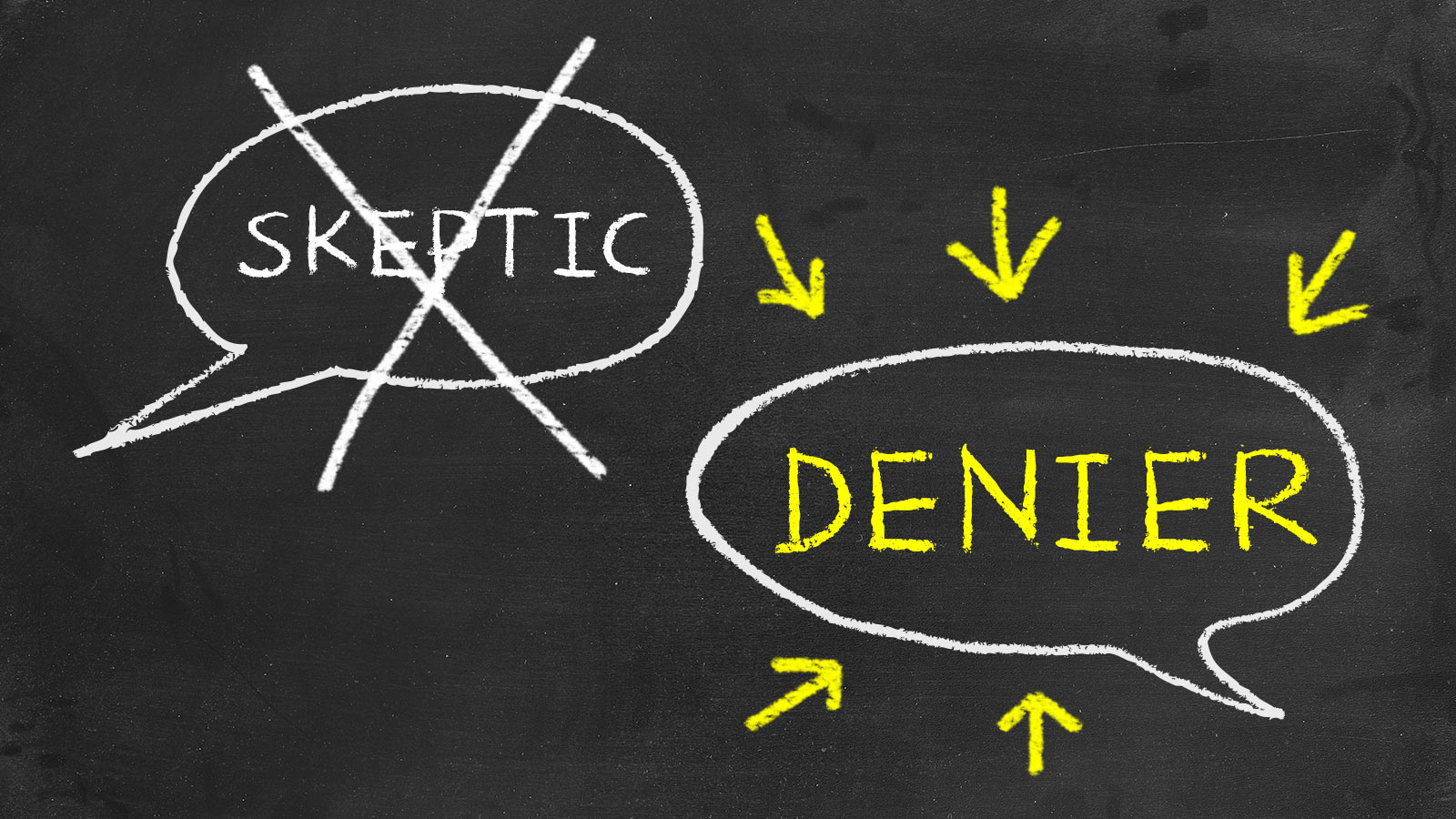There’s a difference between those who are “skeptical” about climate change and those who outright deny that it is happening, and a group of scientists and science communicators is calling on the media to acknowledge it.
“Please stop using the word ‘skeptic’ to describe deniers,” 48 fellows of the Committee for Skeptical Inquiry, a science advocacy group, ask in a statement. Among the prominent people to sign the letter are Bill Nye, Cosmos co-writer and producer Ann Druyan, and Nobel prize-winning chemist Sir Harold Kroto.
The signees cast the media’s treatment of Oklahoma Sen. James Inhofe (R) as exhibit A to illustrate the difference between a “skeptic” and a “denier.” Inhofe, who smugly believes climate change is a “hoax” that he and wise others have seen through, is a “denier.” NPR recently identified him as such, yet, around the same time, The New York Times identified him as a “skeptic.” Confusing.
From the letter:
As Fellows of the Committee for Skeptical Inquiry, we are concerned that the words “skeptic” and “denier” have been conflated by the popular media. Proper skepticism promotes scientific inquiry, critical investigation, and the use of reason in examining controversial and extraordinary claims. It is foundational to the scientific method. Denial, on the other hand, is the a priori rejection of ideas without objective consideration.
Real skepticism is summed up by a quote popularized by Carl Sagan, “Extraordinary claims require extraordinary evidence.” Inhofe’s belief that global warming is “the greatest hoax ever perpetrated on the American people” is an extraordinary claim indeed. He has never been able to provide evidence for this vast alleged conspiracy. That alone should disqualify him from using the title “skeptic.”
As scientific skeptics, we are well aware of political efforts to undermine climate science by those who deny reality but do not engage in scientific research or consider evidence that their deeply held opinions are wrong. The most appropriate word to describe the behavior of those individuals is “denial.” Not all individuals who call themselves climate change skeptics are deniers. But virtually all deniers have falsely branded themselves as skeptics. By perpetrating this misnomer, journalists have granted undeserved credibility to those who reject science and scientific inquiry.
Unfortunately, the distinction between skeptic and denier is one the media will need to be making more and more frequently, as greater numbers of both are moving into positions of power in Congress.



